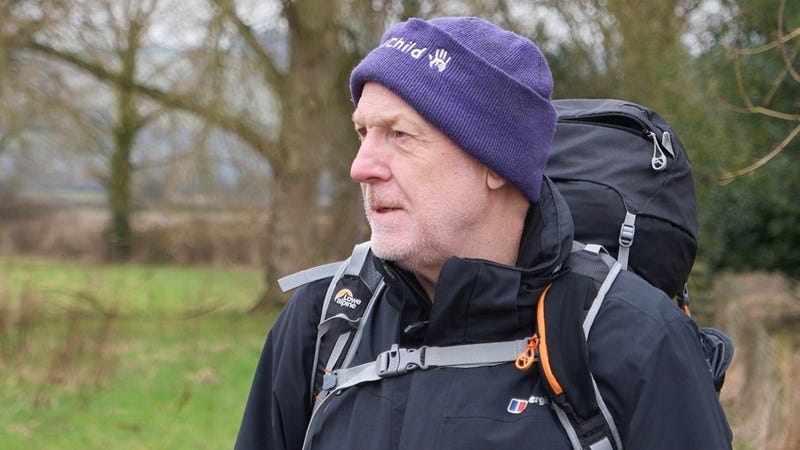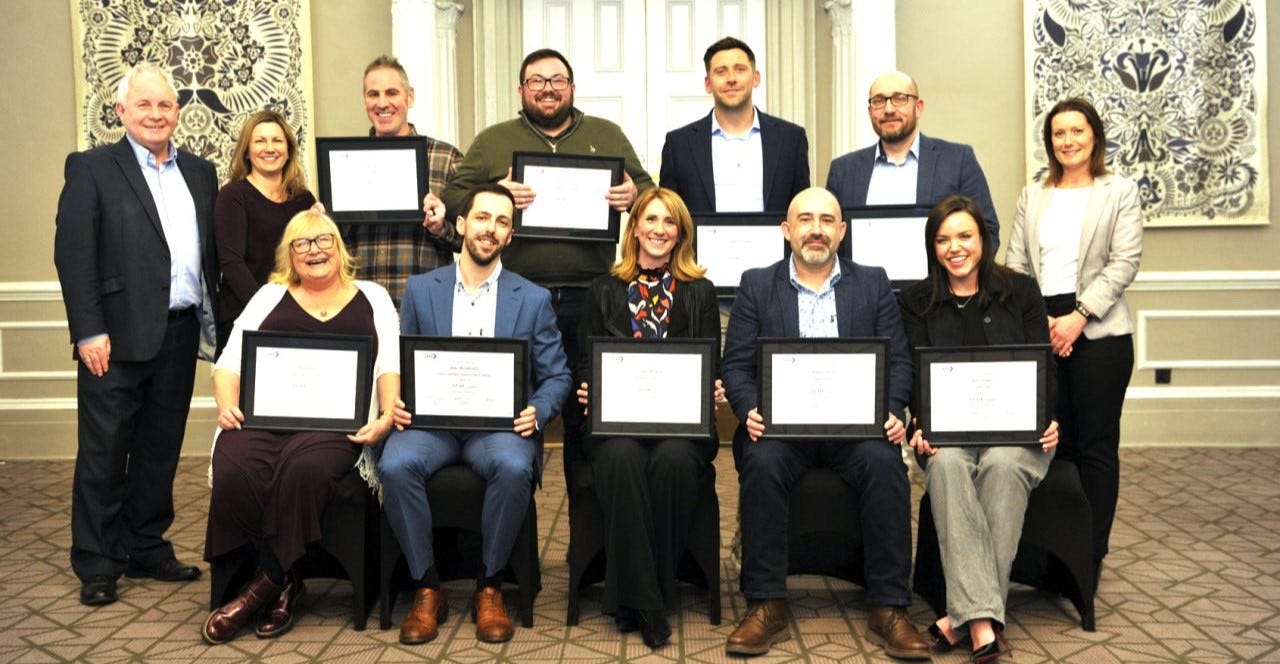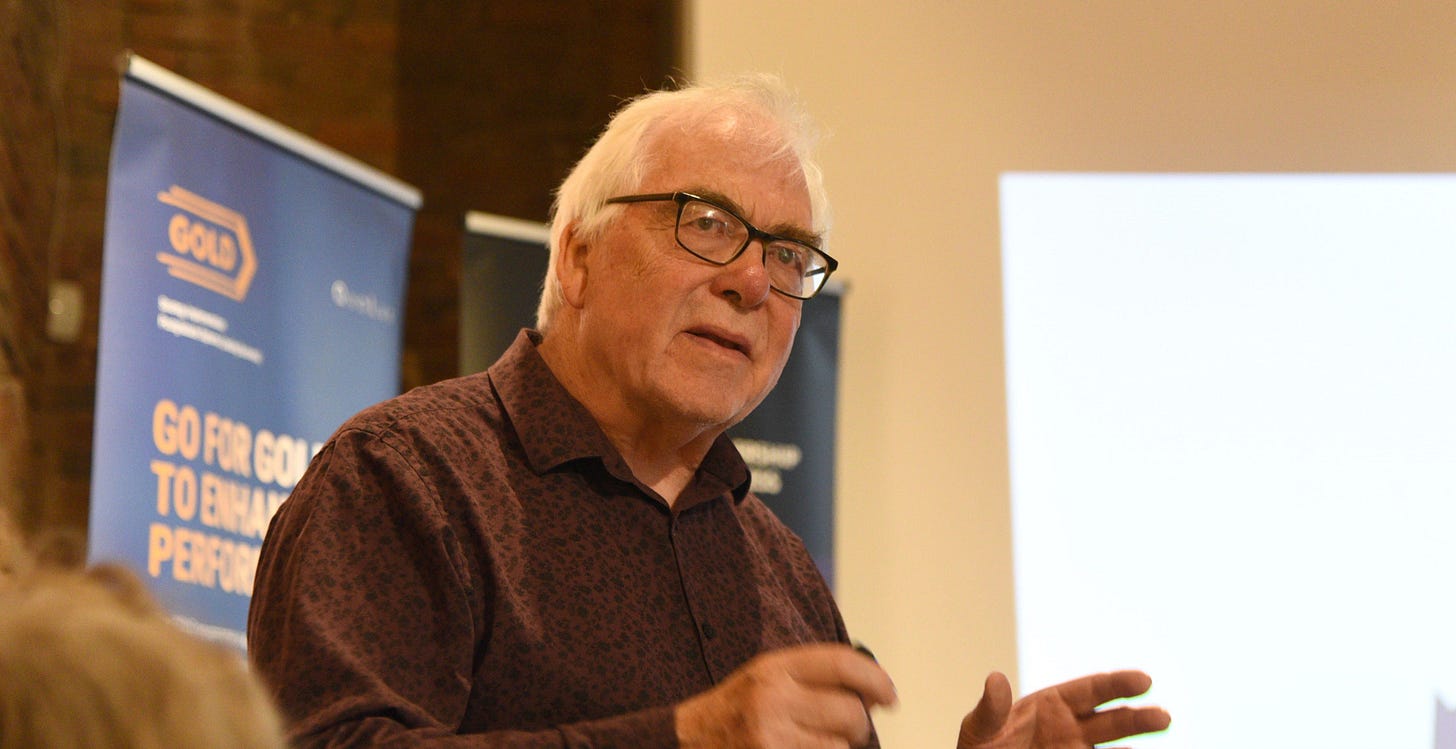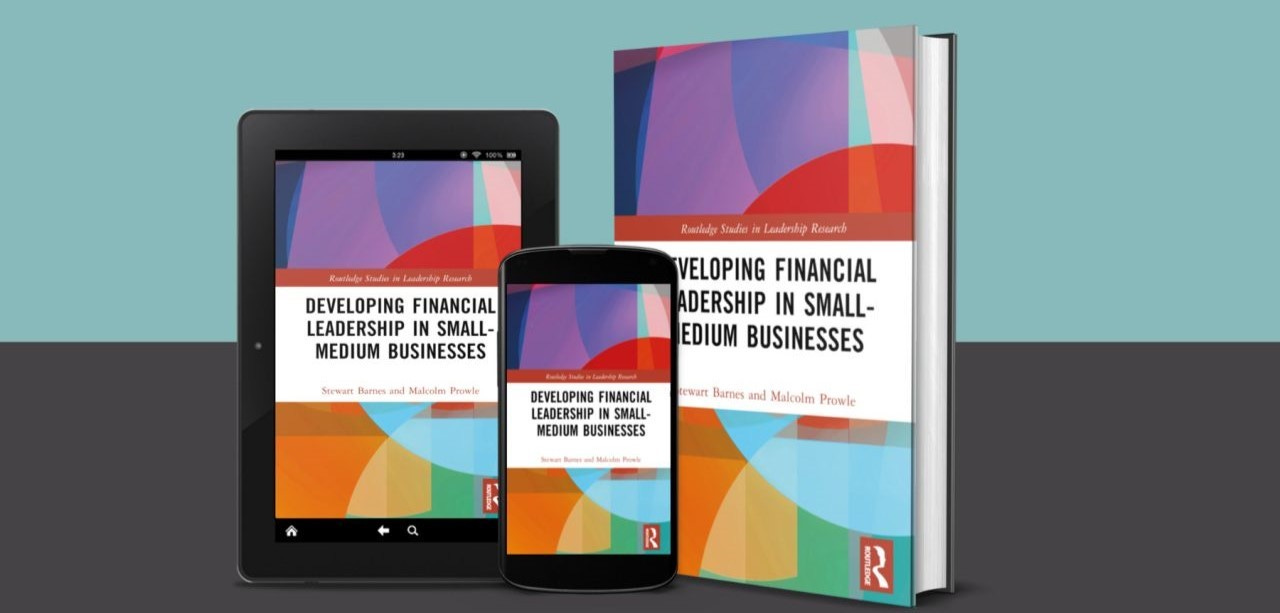How to make Britain Great again
UK plc’s productivity is weak, growth slow and sickness from work and vacancies are rising. Research by a Gloucestershire team points to the answers, but are our political leaders listening?
Dear reader,
Welcome to the first edition of The Raikes Journal of the week.
Please forgive us if the headline brought to mind a certain political giant from across the Atlantic and it’s brought you out in a cold sweat. That was not the intention, and there is no association whatsoever. You are safe to read on.
Although there is some politics. The core argument of the authors is directed at our policymakers and political leaders here in the UK, but mostly it’s aimed at those who can make a real difference and generally do; you, our business leaders.
We hope the thrust of the argument stirs you as it stirs us and points you towards a public discussion on the matter due to take place at Gloucester Rugby in June.
And speaking of rugby, this edition also sees us add our own tribute to the many rightfully falling at the feet of the team they call the Circus, a team that’s just written its names into rugby folklore.
Speaking of stirring achievements, we also point you towards Gloucester grandfather Tom Kelsey, who at the age of 69 has set off on a 1,000-mile self-supported walk to raise money for the Gloucestershire charity WellChild.
And there are some briefing notes and diary dates for the week ahead for you too.
And speaking of the week ahead, have a good one.
Remember, for every person you refer to The Raikes Journal’s email service you get points towards a free membership allowing you to see beyond our paywalls. Please do sign up (free or otherwise), send the referral link to a friend or colleague, and help us grow.
Andrew Merrell (editor).
If you have a story, an issue, a news item, a charity or an interview you want us to write about or investigate, challenge the powers that be about, then please email me: andrew.merrell@raikesjournal.co.uk.
NB: We believe Raikes now publishes probably the best-read business-related email ‘newsletter’, pound for pound, in Gloucestershire.
Making history: Champions – again!
If you get a chance to see the full reel of images of the pre-match/match/post match celebrations taken by photographer Martin Bennett (Gloucester Rugby / Gloucester Hartpury), do so. They lay bare everything that anyone who loves rugby will tell you makes it great; the team, the passion, youth, experience, athleticism, brute force, flare, competition, joy, determination, family, back room staff, the changing room, the fans, the aspiring players, hero-making, leadership, the hard yards, the fleeting but special moment that is victory, and the memories that will remain. Bennett’s reel of images is enough to bring tears of joy to your eyes. It has it all. We’ve been lucky enough to run a few of those images below.
What happened? Gloucester-Hartpury overhauled a 19-5 deficit to defeat Saracens at the StoneX Stadium to secure the Gloucestershire team’s third Premiership Women’s Rugby title in a row. Saracens had led through scores from Jess Breach and Lotte Sharp, but Kate Willans, Emma Sing and Mia Venner crossed the opposition’s try line before the break with forwards Maud Muir, Neve Jones and Natasha ‘Mo’ Hunt adding tries to lay down 29 more unanswered points. It was the perfect send-off for Gloucester coach Sean Lynn as he departs to become head coach of the Welsh national side.
Charity of the week: Extraordinary efforts
After a year-plus plugging Gloucestershire charities and charity activity, we’ve somehow not mentioned Cheltenham-headquartered WellChild! I was reminded as much when leaving my house at the weekend and bumping into one of my neighbours, Tom Kelsey. When I asked him where he was off to it took a few seconds to register the magnitude of what he casually referred to as “a 1,000-mile walk” to raise funds for WellChild, which supports children and young people with serious and complex health needs. Kelsey, 69, is travelling self-supported and camping, with occasional budget hotels and B&B’s thrown in, on a route that will take on the Cotswold Way, Offa’s Dyke, head north along the coastal path to Liverpool, along Hadrian’s Wall, down the Pennine Way, down the canals to London. It’s an extraordinary effort by a modest, very humble and thoroughly likeable bloke. You can find out more, and support him too, right Walk for WellChild.
Your briefing notes…
📈 Freemans Event Partners appointment of a new chief executive officer has revealed just how ambitious the Gloucester-headquartered firm is. We’re told Matt Luscombe joins in the firm’s 50th year to drive a five-year strategy towards a target turnover of £200 million. Luscombe has a track record of leading and growing international businesses, including as chief commercial officer at InterContinental Hotels Group (IHG), general manager at Coles Group and ceo at Cycas Hospitality. Current ceo of Freemans, Stephen Freeman, moves to executive chairman.
📅 The employment team at Willans solicitors will bring you the latest on legislation, case law and immigration with practical advice for your business with a seminar in partnership with the Gloucestershire CIPD. This is the only seminar of its kind in partnership with the county’s Chartered Institute of Personnel and Development. Willans’ employment law team will update you on current employment law, covering recent and future changes in legislation and the impact of recent case law. Due to take place at DoubleTree by Hilton Cheltenham, Cirencester Road, Charlton Kings (GL53 8EA). Find out more here: Employment law update.
📢 The Forest Economic Partnership (FEP) is seeking a “visionary and passionate individual” to take on the role of chair to replace the outgoing Neill Ricketts. Set up 12 years ago the partnership has been instrumental in driving connectivity, sustainability, and careers and skills in the Forest of Dean and plays a pivotal role in fostering sustainable economic growth and prosperity within the district. Its aim is to create a thriving and resilient local economy. Interested candidates should email FEP@fdean.gov.uk.
Diary dates…
📅 Monday until Friday: A business exhibition with a difference is underway this week. One of Gloucestershire’s hidden business gems, Big Punch Studios, is staging the event at another of the county’s hidden gems, Jolt Studios. Jon Lock, the creator of Afterlife Inc, and part of Big Punch, is staging the free exhibition at the King’s Square-based business incubator space until Friday 21 March. Lock has just completed volume seven of the Afterlife Inc comic series and is showcasing some of the artwork alongside work by comic artists Raffaele Ricciardi, JP Jordan, V.V. Glass and Will Tempest, along with a selection of emerging talent. Afterlife Inc has just been published by Macmillan Children’s Books and 2000AD. Lock has also been working on another graphic novel for Macmillan, a series called Tiny Hercules, in collaboration with his creative partner Nick Agell, also of Big Punch Studio.
📅 Tuesday: Tewkesbury Growth Hub is staging its latest creative and wellbeing ‘netwalks’ for female entrepreneurs. Aimed at women running creative or wellbeing businesses, or those thinking of starting one, this is a relaxed space for likeminded women to connect and share knowledge and ideas. Due to take place from 10am.
📅 Wednesday: Alex Brown of Gloucester Rugby will be the keynote speaker at Gloucestershire Growth Forum: Insights to Accelerate Your Business Growth, an all-day event at the University of Gloucestershire. Organised by Gloucestershire Growth Forum by organisers Emerge Digital, and the government-backed Growth Hub.
📅 Thursday: Constructing Excellence Gloucestershire Club’s networking breakfast with special guest speaker Andrew Bates, the chief financial director for Gloucestershire College. You are welcome along to listen, learn, join in the conversations and enjoy a “hearty breakfast” at Pittville Pump Rooms, Cheltenham. Cost is £20.
📅 Friday: Martin Thorne, of software firm Joist, is staging another Laptop Friday at Fox’s Kiln, West Quay, 10 Commercial Rd, The Docks, Gloucester GL1 2LG, a co-working session for businesses and freelancers, from 12.30pm to 2.30pm.
* The Raikes Journal is a community interest company. Everything you read by us is made possible by our incredible Founding Partners: QuoLux, Willans LLP, Gloucestershire College, Merrell People and Randall & Payne, our sponsors Hartpury University and Hartpury College, our Founding Members and wonderful paying subscribers.
If you subscribe and invite friends to The Raike Journal you will earn rewards towards complimentary membership (three referrals will get you one month, 10 will get you three months, and 25 will win you six months).
If you upgrade to paid you’ll be part of this CIC too. We are dedicated to delivering quality journalism for Gloucestershire, to championing the county, in particular its businesses, charities, education and training providers, and to helping create an even stronger community. If you upgrade to paid you will be able to see past the paywalls often put on our second and third email editions of the week, that lock all our archive after two weeks and lock our rolling Top 100 Businesses in Gloucestershire series. You will be able to comment on our stories too. You’ll be helping make this CIC sustainable to deliver more original articles on our county.
You can sign up to receive your two extra editions a week and see past all our paywalls for just £2.30 a week - or £1.80 a week if two or more people sign up at once. Or go all in and become one of our Founding Partners or Founding Members!
How to make Britain Great again
UK plc’s productivity is weak, growth slow and sickness from work and vacancies are rising. Research by a Gloucestershire team points to the answers, but are our political leaders listening?
By Andrew Merrell.
If you are a business leader wondering how on earth to achieve consistent growth, solve your skills shortages, change the world for the better even, then this article and the blueprint for action it refers to, should be worth a few minutes of your time.
We think the arguments laid down in a just-published book, based on years of research by a Gloucestershire business, co-authored by that company’s founder and a professor in performance management, are compelling.
Developing Financial Leadership in Small-Medium Businesses is not academic research for its own sake. It aims to create real change.
Its conclusions have been arrived at after two decades of working with real companies to develop their leadership teams and mapping the dramatic impact that investment has had on the bottom line of those firms against the estimated 90 per cent of UK businessses who make no such investment in meaningful training.
The idea is that a shift in emphasis by our political leaders away from the nation’s growing army of micro businesses towards small and medium-sized firms, and a focus on leadership development and culture change in those businesses, will unlock incredible potential.
A focus on financial leadership, it argues, will transform productivity and the bottom line, re-vitalise the jobs market, amplify the focus of training and reduce the numbers of unemployed and long-term sick.
It could even improve the environment.
There are case studies of real businesses and data to back up the arguments in what is currently a book aimed at the university and MBA sector internationally, but is about to go on general release too.
And the target is also the nation’s policy makers.
Its co-author, Malcom Prowle, is a scientist, one-time accountant with KPMG and an advisor to two House of Commons Select Committees.
Prowle first hooked up with his co-author, Dr Stewart Barnes, when he came to work at the University of Gloucestershire, where he is now its professor of performance management.
Barnes, as any of you who are regular readers of Raikes should know, is the founder and ceo of leadership development specialists QuoLuxTM, the Gloucester-headquartered firm sought after to work with the management teams of an increasing number of small and medium-sized businesses – what the co-authors call SMBs, rather than SMEs.
“The best performing SMBs are those with strong financial leadership, and not just that – a strong understanding of the finances of the firm throughout the business. Most businesses, however, are simply not tooled-up to do this,” said Professor Prowle.
How to achieve that, and the compelling argument around how it will impact your business if you do go on that journey, is all mapped out in, Developing Financial Leadership in Small-Medium Businesses, which was published on Wednesday last week by Routledge.
According to the authors there are approximately 260,000 SMBs in the United Kingdom.
“SMBs produce 32 per cent of the GDP of the country and employ just under a third of the workforce. They are a very important part of our economy. Yet the Government does not focus on them,” said Prowle.
“Most businesses don’t generally have a strategic focus, they just think about today and next month.
“But if we can get them to work on their strategy, and in particular on their financial leadership – not just leaving that up to the finance director – we start to see a huge shift in direction of travel.”
For Barnes, it’s more than just about growing a business. It’s understanding the impact a business can have on its community and the environment - and impact that makes for a powerful commercial force for good.
“Government tends to focus on small businesses, meaning it looks at the vast number of business which are one-man bands and talks about them. Some of those will be the big businesses of the future, but most of them fail,” said Barnes.
“The growth potential and job creation will come mostly from the SMBs. That’s where the opportunity it.”
The core narrative of the book is dramatic because of its conclusions.
It predicts that with the right leadership within businesses the number of microbusinesses will fall as the quality of the culture within existing firms changes to draw their workforces back into the fold - those who left to forge their own companies. Companies that will often, ultimately fail.
And in creating a more positive work culture and better leadership there is the potential also to draw many of those the Government is keen to encourage back into the workplace, but who for whatever reason do not feel supported enough to return, do not see the businesses they want to work for, or do not see the opportunities emerging for them to take up.
“Imagine a situation where the number of single-person businesses return to the figure at the start of the millennium (i.e. 2.4 million).
“That would mean 1.7 million people would be free to be employed elsewhere,” said Barnes.
“At time of writing the book, there are 1.1 million vacancies in the UK economy and both private and public sector organisations of any size are finding it very difficult to recruit which, in turn, has contributed to wage inflation, a phenomenon seen in many countries.
“Due to the difficulty in recruitment, many SMBs have reined in their growth plans which curtails their own growth and national productivity.
“There is no evidence of any increase in the investment in technology to emolliate the effects of employing people, which again dampens productivity.
“The 1.7 million above equates to seven new jobs created at each of the quarter of a million SMBs.
“Recent research conducted by QuoLuxTM found that a year after SMBs had completed the leadership development and growth programme, LEADTM, the SMB owner-managers reported a 19 per cent increase in employment.
“Taking a median of thirty employees per SMB that is almost six new jobs per SMB.
“Imagine that same approach, developing SMB leaders and their organisations, replicated across a nation – a restructuring of the shape of an economy leading to growth at SMB and national levels becomes possible.”
Some key points from Developing Financial Leadership in Small-Medium Businesses
In the UK and globally, over 90 per cent of startups fail within a decade.
There are 4.1 million single-person businesses in the UK (out of total business population of 5.5m).
There are 1.1 million micro-businesses employing less than 10 people
Less than 25 per cent of micro-businesses are growth-orientated with only a fraction actually growing to become small businesses employing more than 10
Therefore, we have 95 per cent of businesses in the UK either not employing people, not wishing to grow or most likely to fail with all its costs financially, socially and for people’s mental health.
Traditionally, the focus of policy has been on start-ups and micro-businesses ie where the volume is.
We believe focus should be on SMB: businesses employing 10 – 249. These make up five per cent of the business population and produce 32 per cent of the countries output!
There are 260,000 SMBs in the UK. We call them the ‘vital five per cent’.
Other worrying figures: 59 per cent of employees had no training last year yet heads of business say people are their greatest asset – a clear gap between rhetoric and reality!
90 per cent of UK employees are disengaged or actively disengaged. This points to poor leadership practice in businesses.
To address this, there is a clear need for more effective leadership development and support for business leaders to develop their people in order to develop their business.
Engaged organisations report a 22 per cent growth in productivity; LEADTM delegates report 48 per cent growth in productivity. Nationally, UK’s productivity is flatlining.
“The traditional role of policymakers is to engage major institutions (notably financial institutions) in embracing a partnership with universities.
“We advocate that this partnership approach should be extended to include privately owned leadership development practitioners and regional/local specialist firms (accountants, corporate finance, solicitors) who are more likely to have relationships with SMBs and, crucially, have their trust.
“This extension would be a sense-making role to convince such organisations that it is in their interest as major stakeholders in society to support SMBs with targeted support to develop their financial understanding and acumen, to support growth or encourage growth as not all SMBs will be growth-orientated.
“Society owes much to the few. We argue that SMBs are a forgotten sub-group whose importance is lost to the many and masked by the traditional discussions around startups and micro-businesses that represent 95 per cent of the business population.
“We believe a refocus towards the five per cent can address the anaemic performance of productivity in the UK and western European economies and provide direction to policymakers in emerging economies to learn by avoiding repeating the mistakes of the West.
“We advance the importance of leadership development of owner-managers of SMBs – the CEOs, MDs, directors, partners and senior managers who have considerable influence on the strategic direction and culture of SMBs through their presence and their focus, in other words, their leadership.
“Further, we suggest a new way of working that aligns policymakers, universities, business support agencies, financial institutions with local and regional professional services, such as accountancy firms, solicitors, private-sector training businesses all of whom have long-term relationships with SMBs.
“This final point is what QuoLuxTM calls ‘communityship’ and sits well with the thoughts of ‘good growth’ and embracing Sustainable Development Goal 17 (as laid down by the United Nations) – appropriate partnerships in communities for the good of all.”
The book will be launched on Monday 16 June from 5pm to 8pm at Kingsholm, Gloucester Rugby Club to an invited audience. Everyone will receive a free signed copy of a limited edition of the book which Routledge has kindly agreed to publish for QuoLuxTM for the launch.









